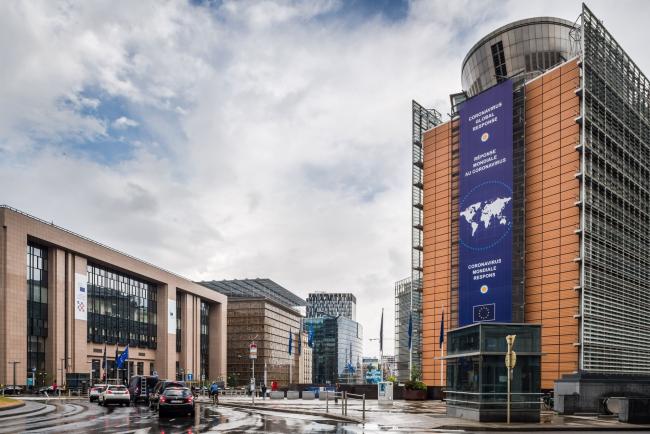(Bloomberg) --
The European Union’s executive arm said the bloc’s “economic sovereignty is at stake” due to its reliance on imports of raw materials, components and energy, adding to signs of increasing protectionism.
“The EU is heavily dependent on non-EU countries for critical raw materials that are essential for staying at the forefront of global competition -- be it in economic or defense terms,” the European Commission said in its first ever “Strategic Foresight” report, which seeks to prepare policy makers for the challenges of the future. “To preserve EU companies and critical assets, the EU’s openness to foreign investment needs to be balanced by the appropriate tools,” the commission said.
The report is released after the pandemic exposed the EU’s vulnerabilities in areas including healthcare, pharmaceuticals and industrial supply chains. The bloc faced shortages in goods ranging from agricultural products to generic drugs.
Factory closures in Covid-19 hot spots in China forced automotive plants across Europe to shutdown and led to losses equivalent to 12.5% of last year’s total production, the report said. The trauma has led to calls for a more resilient Europe that is less reliant on complex networks of international suppliers.
“Resilience is becoming our new policy compass,” European Commission Vice-President Maros Sefcovic told reporters ahead of the release. The message that EU’s policy focus is set to shift toward ensuring its “strategic autonomy,” which echoes some of the themes raised by U.S. President Donald Trump, is set to be picked up by the bloc’s leaders when they meet in Brussels later this month.
Global ‘Megatrend’
“The shift of power to the East and South is a global megatrend,” the report said. “As the EU’s share in the world population and in global GDP diminishes, this may have a further impact on its clout in many critical areas.”
The EU has been pushing legislative and regulatory measures to protect its global standing against this shift in the global balance of power. These include plans to curb takeovers of European firms, punish imports from polluting companies outside the EU, build a common defense policy, and prevent access to European procurement when there’s no reciprocity.
“The rapidly escalating U.S.-China technological confrontation is disrupting global digital supply chains,” the report said. “It will have a direct impact on the single market and reinforce the need for the EU to pursue its technological sovereignty agenda and strengthen its key digital capacities.”
©2020 Bloomberg L.P.

